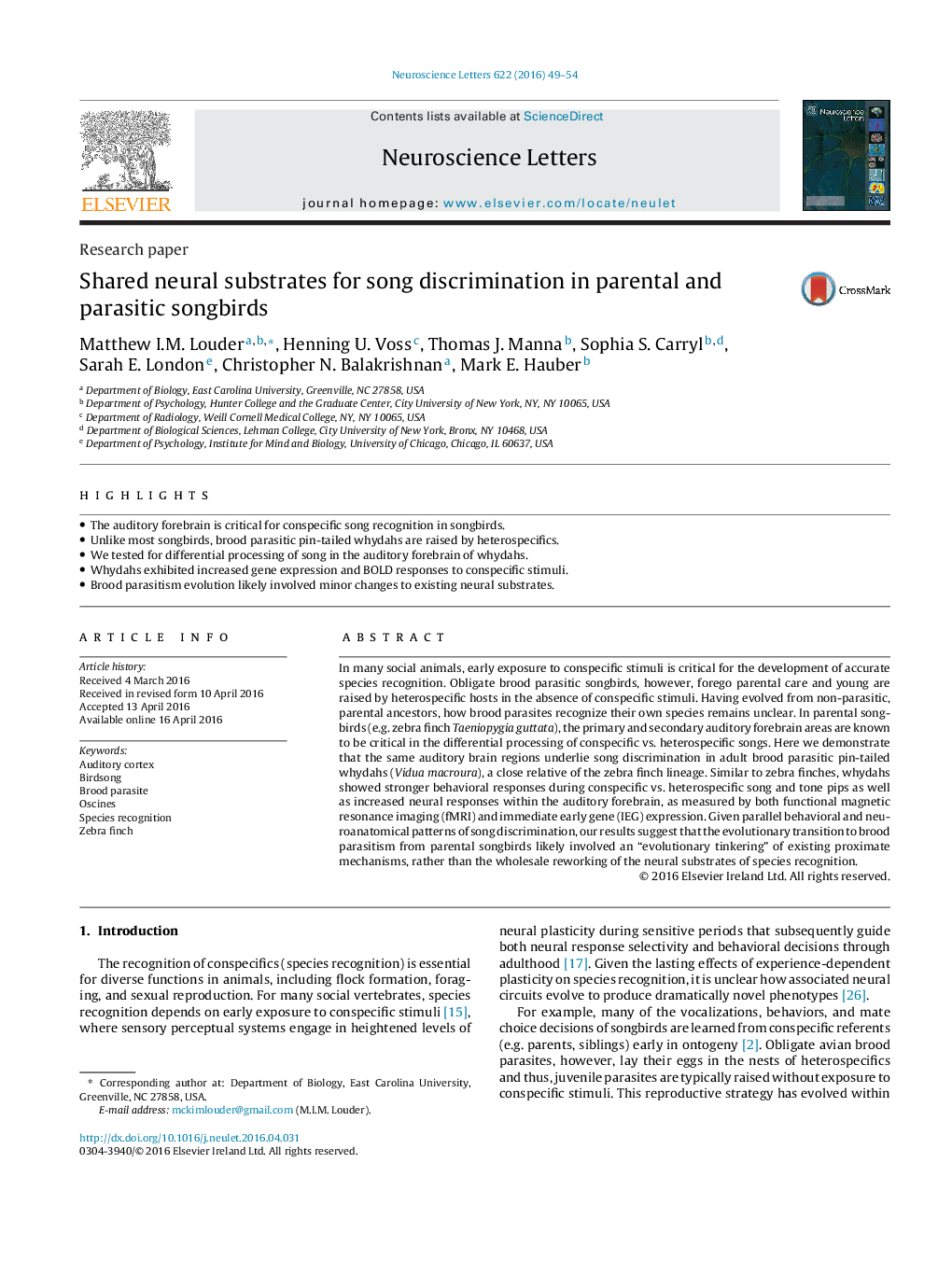| کد مقاله | کد نشریه | سال انتشار | مقاله انگلیسی | نسخه تمام متن |
|---|---|---|---|---|
| 6279272 | 1615077 | 2016 | 6 صفحه PDF | دانلود رایگان |
عنوان انگلیسی مقاله ISI
Shared neural substrates for song discrimination in parental and parasitic songbirds
ترجمه فارسی عنوان
زیربناهای عصبی مشترک برای تبعیض آهنگ در پرندگان آواز خوانی والدین و انگلی
دانلود مقاله + سفارش ترجمه
دانلود مقاله ISI انگلیسی
رایگان برای ایرانیان
کلمات کلیدی
موضوعات مرتبط
علوم زیستی و بیوفناوری
علم عصب شناسی
علوم اعصاب (عمومی)
چکیده انگلیسی
In many social animals, early exposure to conspecific stimuli is critical for the development of accurate species recognition. Obligate brood parasitic songbirds, however, forego parental care and young are raised by heterospecific hosts in the absence of conspecific stimuli. Having evolved from non-parasitic, parental ancestors, how brood parasites recognize their own species remains unclear. In parental songbirds (e.g. zebra finch Taeniopygia guttata), the primary and secondary auditory forebrain areas are known to be critical in the differential processing of conspecific vs. heterospecific songs. Here we demonstrate that the same auditory brain regions underlie song discrimination in adult brood parasitic pin-tailed whydahs (Vidua macroura), a close relative of the zebra finch lineage. Similar to zebra finches, whydahs showed stronger behavioral responses during conspecific vs. heterospecific song and tone pips as well as increased neural responses within the auditory forebrain, as measured by both functional magnetic resonance imaging (fMRI) and immediate early gene (IEG) expression. Given parallel behavioral and neuroanatomical patterns of song discrimination, our results suggest that the evolutionary transition to brood parasitism from parental songbirds likely involved an “evolutionary tinkering” of existing proximate mechanisms, rather than the wholesale reworking of the neural substrates of species recognition.
ناشر
Database: Elsevier - ScienceDirect (ساینس دایرکت)
Journal: Neuroscience Letters - Volume 622, 27 May 2016, Pages 49-54
Journal: Neuroscience Letters - Volume 622, 27 May 2016, Pages 49-54
نویسندگان
Matthew I.M. Louder, Henning U. Voss, Thomas J. Manna, Sophia S. Carryl, Sarah E. London, Christopher N. Balakrishnan, Mark E. Hauber,
